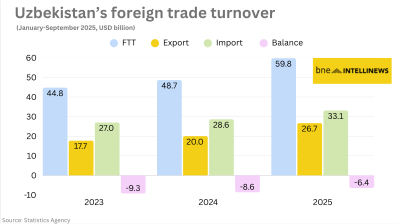Croatia, along with India, has introduced some of the strictest measures aimed at containing the spread of coronavirus (COVID-19) in the world, according to the Oxford COVID-19 Government Response Tracker (OxCGRT) launched by the Blavatnik School of Government at Oxford University.
The index is based on scores assigned for the stringency of a set of common policy responses governments have taken, using data collected from public sources by dozens of Oxford University students and staff.

Croatia was the first country across the Central and Southeast Europe region to confirm a coronavirus case. In mid-March it announced a raft of social distancing measures, including the closure of all cafes and restaurants, gyms, playgrounds and other venues, as well as banning gatherings and telling companies to find a way for their employees to work from home. Public transport has also been suspended.
As of March 30, the authorities had collected HRK130,000 (€17,000) in fines from people violating self-isolation rules.
Strict measures have also been adopted in several other Central and Southeast European countries such as Serbia, Bulgaria, Hungary and the Czech Republic, according to the index.
Serbia has turned to China for support, looking to learn from the Chinese experience in bringing the spread of the infection under control after the mass outbreaks in Hubei and Wuhan. The country declared a state of emergency earlier in March and introduced a series of restrictions immediately, including a curfew and the closure of public facilities and schools.
Hungarian Prime Minister Viktor Orban announced a curfew for the entire country from March 28 until April 11. People are only allowed to leave their homes to go to work or to run essential errands.
Bulgaria’s health ministry on March 20 banned intercity travel and closed parks, playgrounds and other public areas in new set of measures aimed at limiting the number of coronavirus cases. The government also proposed a controversial law on the state of emergency that critics warned risks jeopardising freedom of speech.
Other countries have also tightened their restrictions in the last few days. In Russia, Moscow Mayor Sergey Sobyanin ordered a lockdown of the city that came into effect on March 30. In measures that are tougher than those in London and Berlin Muscovites will only be allowed outside to shop (and only at a local store), visit a pharmacy, take the rubbish out and walk pets (but only within 100m of their residence).
There are also strict rules in three West European countries that have seen a rapid spread of the virus: France, Italy and Spain.
However, the index reveals that other countries with major outbreaks, notably the US that now has the largest number of cases in the world, have been less stringent.
The OxCGRT was first published on March 25, with data from 73 countries, although more are expected to be added.
It looks at 11 indicators of government response: school closure, workplace closure, public event cancellation, public transport closure, public information campaigns, restrictions on internal movement, international travel controls, fiscal measures, monetary measures, emergency investment in healthcare and investment in vaccines.
“Our index cannot, of course, tell the full story, but we believe the data we have collected can help decision makers and public health professionals examine the robustness of government responses and provide a first step into understanding exactly what measures have been effective in certain contexts, and why,” commented project leader Thomas Hale, associate professor of global public policy at the Blavatnik School of Government.
Data

Estonia has the world’s most competitive tax systems for the 11th year in a row – STATISTA
The Tax Foundation has released its International Tax Competitiveness Index which highlights the most competitive tax rates in different countries around the world. For the 11th consecutive year, Estonia had the highest score in the index.

EU rare earth supply dominated by China and Russia - Eurostat
The European Union remains heavily dependent on China and Russia for rare earth imports, with nearly three-quarters of its supply sourced from the two countries in 2024, according to data published by Eurostat and reported by Statista.

Turkey's central bank remains cautious, delivers 100bp rate cut
Decision comes on eve of next hearing in trial that could dislodge leadership of opposition CHP party.

Polish retail sales return to solid growth in September
Polish retail sales grew 6.4% year on year in constant prices in September, picking up from a 3.1% y/y rise in August, the statistics office GUS said.


